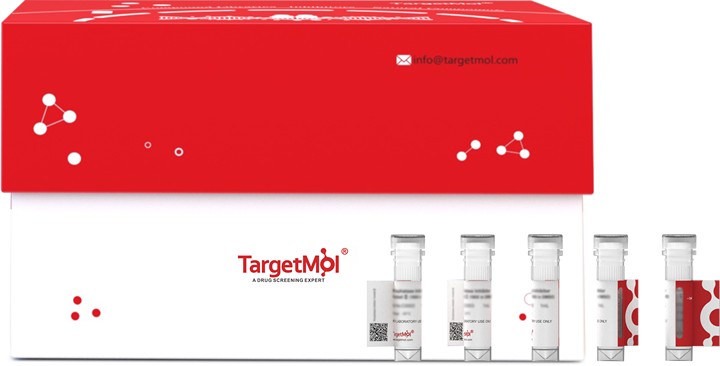Shopping Cart
Remove All Your shopping cart is currently empty
Your shopping cart is currently empty
IFITM1 Protein, Human, Recombinant (GST) is expressed in E. coli expression system with N-GST tag. The predicted molecular weight is 31.0 kDa and the accession number is P13164.

| Pack Size | Price | USA Warehouse | Global Warehouse | Quantity |
|---|---|---|---|---|
| 5 μg | $75 | 20 days | 20 days | |
| 10 μg | $119 | 20 days | 20 days | |
| 20 μg | $198 | 20 days | 20 days | |
| 50 μg | $297 | 20 days | 20 days | |
| 100 μg | $427 | 20 days | 20 days | |
| 200 μg | $658 | 20 days | 20 days | |
| 500 μg | $1,170 | 20 days | 20 days | |
| 1 mg | $1,830 | 20 days | 20 days |
| Biological Activity | Activity has not been tested. It is theoretically active, but we cannot guarantee it. If you require protein activity, we recommend choosing the eukaryotic expression version first. |
| Description | IFITM1 Protein, Human, Recombinant (GST) is expressed in E. coli expression system with N-GST tag. The predicted molecular weight is 31.0 kDa and the accession number is P13164. |
| Species | Human |
| Expression System | E. coli |
| Tag | N-GST |
| Accession Number | P13164 |
| Synonyms | Leu-13 antigen,Interferon-inducible protein 9-27,Interferon-induced transmembrane protein 1,Interferon-induced protein 17,IFITM1,IFI17,Dispanin subfamily A member 2a (DSPA2a),CD225 |
| Amino Acid | MHKEEHEVAVLGPPPSTILPRSTVINIHSETSVPDH |
| Construction | 1-36 aa |
| Protein Purity | > 90% as determined by SDS-PAGE. |
| Molecular Weight | 31.0 kDa (predicted) |
| Endotoxin | < 1.0 EU/μg of the protein as determined by the LAL method. |
| Formulation | Tris-based buffer, 50% glycerol |
| Reconstitution | A Certificate of Analysis (CoA) containing reconstitution instructions is included with the products. Please refer to the CoA for detailed information. |
| Stability & Storage | Lyophilized powders can be stably stored for over 12 months, while liquid products can be stored for 6-12 months at -80°C. For reconstituted protein solutions, the solution can be stored at -20°C to -80°C for at least 3 months. Please avoid multiple freeze-thaw cycles and store products in aliquots. |
| Shipping | In general, Lyophilized powders are shipping with blue ice. Solutions are shipping with dry ice. |
| Research Background | IFN-induced antiviral protein which inhibits the entry of viruses to the host cell cytoplasm, permitting endocytosis, but preventing subsequent viral fusion and release of viral contents into the cytosol. Active against multiple viruses, including influenza A virus, SARS coronaviruses (SARS-CoV and SARS-CoV-2), Marburg virus (MARV), Ebola virus (EBOV), Dengue virus (DNV), West Nile virus (WNV), human immunodeficiency virus type 1 (HIV-1) and hepatitis C virus (HCV). Can inhibit: influenza virus hemagglutinin protein-mediated viral entry, MARV and EBOV GP1,2-mediated viral entry and SARS-CoV and SARS-CoV-2 S protein-mediated viral entry. Also implicated in cell adhesion and control of cell growth and migration. Inhibits SARS-CoV-2 S protein-mediated syncytia formation. Plays a key role in the antiproliferative action of IFN-gamma either by inhibiting the ERK activation or by arresting cell growth in G1 phase in a p53-dependent manner. Acts as a positive regulator of osteoblast differentiation. In hepatocytes, IFITM proteins act in a coordinated manner to restrict HCV infection by targeting the endocytosed HCV virion for lysosomal degradation. IFITM2 and IFITM3 display anti-HCV activity that may complement the anti-HCV activity of IFITM1 by inhibiting the late stages of HCV entry, possibly in a coordinated manner by trapping the virion in the endosomal pathway and targeting it for degradation at the lysosome. |
| Size | Quantity | Unit Price | Amount | Operation |
|---|

Copyright © 2015-2026 TargetMol Chemicals Inc. All Rights Reserved.